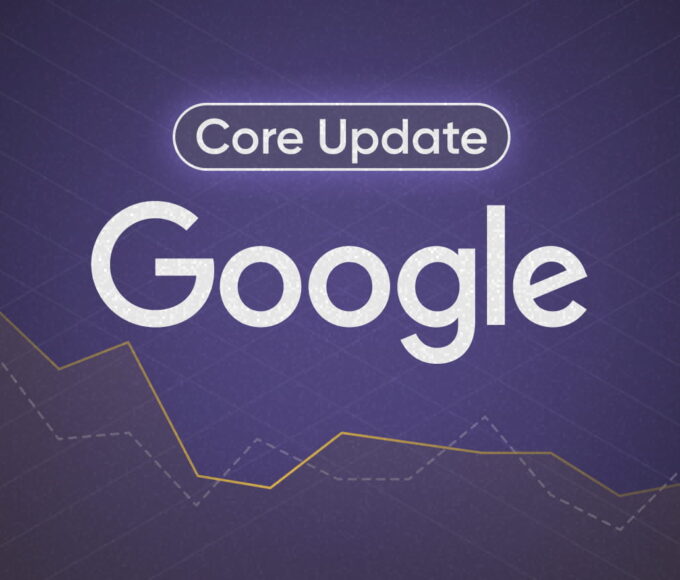10 SEO Tools You’ve Never Heard Of (But Should Be Using)

When people talk about SEO tools, the same big names always come up Ahrefs, SEMrush, Moz, and Yoast. They’re great, but let’s be honest they’re not the only players in the game anymore.
In 2026, new and lesser-known SEO tools are quietly transforming how marketers analyze data, optimize content, and outrank competitors. These tools might not have huge marketing budgets, but they deliver serious value, often with smarter features, fresher data, and lighter price tags.
So if you’re ready to upgrade your SEO toolkit, here are 10 underrated SEO tools you’ve probably never heard of but should definitely be using.
1. Surfer AI Writer
Best for: AI-assisted on-page SEO optimization
Surfer AI Writer combines AI-generated writing with real-time SEO optimization. Unlike generic AI tools, this one understands keyword density, semantic relevance, and SERP structure so your content is built for ranking right from the start.
You enter a topic, and it analyzes the top-ranking pages before generating a draft that mirrors what Google already loves but in your tone.
Why it’s powerful:
- Integrates keyword clusters naturally
- Suggests word count, headings, and NLP terms
- Helps content writers create rank-ready articles faster
Perfect for bloggers, agencies, and freelancers who want SEO-friendly AI without the fluff.
2. NeuronWriter
Best for: Semantic SEO and content planning
NeuronWriter helps you understand how Google thinks. It uses natural language processing (NLP) to analyze top results and suggest phrases, entities, and topics your competitors are using and you’re not.
It’s like having a mini data scientist for your content strategy.
Why it’s worth trying:
- Focuses on search intent and topic relevance
- Offers real-time content scoring
- Great for optimizing existing blogs for better rankings
If you’re serious about semantic SEO, this tool gives you a head start.
3. Keyword Insights
Best for: Keyword clustering and content mapping
Keyword Insights takes thousands of keywords and groups them into logical clusters based on Google’s SERP similarity. This helps you avoid duplicate content and build a topic authority map around your niche.
What makes it unique:
- Uses live SERP data to identify content overlap
- Suggests ideal content formats (blog, landing page, FAQ)
- Helps plan pillar pages and cluster content easily
It’s the perfect alternative to endless spreadsheet keyword sorting.
4. LowFruits
Best for: Finding easy-to-rank keywords
LowFruits does what the name suggests helps you find low-competition, high-opportunity keywords.
It scans search results for weak domains, low-authority pages, and unoptimized competitors — giving you “green light” topics where you can win easily.
Why it’s great:
- Pinpoints content gaps in your niche
- Shows keyword difficulty based on real SERP data
- Perfect for small websites or new blogs building momentum
If you’re tired of chasing impossible keywords, this one helps you find the quick wins.
5. SEOTesting
Best for: Measuring what’s actually working
SEOTesting helps you run real SEO experiments on your website just like A/B testing, but for search performance.
You can test changes to your meta titles, internal links, or page structures and track the direct impact on impressions and clicks.
Why it’s underrated:
- Tracks historical performance automatically
- Helps prove the ROI of your SEO changes
- Integrates with Google Search Console data
For data-driven SEOs, it’s a must-have.
6. Screpy
Best for: AI-powered technical SEO monitoring
Screpy is an all-in-one technical SEO analyzer that constantly monitors your site’s health — speed, uptime, Core Web Vitals, and keyword rankings using artificial intelligence.
Key benefits:
- Monitors multiple sites from one dashboard
- Detects performance issues in real time
- Prioritizes SEO tasks by importance
It’s like having an automated SEO assistant keeping an eye on your site 24/7.
7. AlsoAsked
Best for: Content idea generation based on user questions
AlsoAsked shows you what people actually ask on Google in a visual tree format based on People Also Ask data.
You can uncover hidden content opportunities and structure posts around real audience questions.
Why marketers love it:
- Reveals related search intent
- Helps build FAQ sections that attract zero-click visibility
- Great for voice search optimization
If you want to write content that directly answers your audience’s questions, this tool is gold.
8. ContentKing
Best for: Real-time SEO auditing and change tracking
Unlike traditional crawlers that run on demand, ContentKing continuously monitors your website and alerts you the moment something breaks a missing title tag, 404 error, or broken redirect.
Why it’s powerful:
- Real-time crawling and notifications
- Tracks every on-page change
- Prevents costly SEO mistakes before they hurt rankings
It’s ideal for agencies managing multiple clients or large sites with frequent updates.
9. Frase.io
Best for: Content briefs and AI-assisted research
Frase.io helps you research, plan, and optimize content all in one place. It analyzes top-ranking pages and builds SEO briefs that outline questions to answer, keywords to use, and structure to follow.
Why it stands out:
- Streamlines the research process
- Suggests subtopics and headings
- Includes AI writer for draft creation
It’s perfect for content teams that want to create data-backed articles fast without spending hours researching.
10. Nightwatch
Best for: Advanced rank tracking with visual reports
Nightwatch is a modern alternative to legacy rank trackers. It provides precise, location-based ranking data, SERP feature tracking, and visual reporting dashboards that make client reporting easier.
What makes it unique:
- Tracks desktop and mobile rankings separately
- Monitors featured snippets and local packs
- Integrates with Google Data Studio and Analytics
For agencies and SEO consultants, Nightwatch offers better insights and cleaner reports than most mainstream tools.
Bonus Tip: Mix Tools for Maximum Results
You don’t need to use all 10 tools but combining a few can transform your workflow. For example:
- Use Keyword Insights for clustering
- Optimize with NeuronWriter
- Track performance with SEOTesting
- Monitor issues using Screpy or ContentKing
By stacking the right tools together, you cover every SEO layer from keyword research to technical optimization efficiently and affordably.
Conclusion
SEO in 2026 isn’t about having the biggest budget or the flashiest software it’s about working smarter.
The most successful marketers are the ones who discover hidden tools that give them an edge before everyone else catches on.
So, instead of relying only on the classics, explore the underdogs.
These 10 tools can help you uncover keyword gold, refine your strategy, and keep your SEO performance sharp without breaking the bank.
In the world of search optimization, innovation is your advantage.

Digilab Insights
Digilab Insights, your trusted source for expert-driven practical tips, proven strategies, and the latest trends in SEO, content marketing, social media, paid ads, and digital growth.
Recent Posts
How to Repurpose One Blog Post into 10 High-Performing Assets
October 30, 2025Related Articles
How to Recover from a Google Core Update (Step-by-Step)
Few things cause more panic among digital marketers and website owners than...
ByDigilab InsightsOctober 26, 2025Local SEO Without a Physical Store: Free Global Freelancer’s Guide
If you’re a freelancer, consultant, or online business owner, you’ve probably heard...
ByDigilab InsightsOctober 24, 2025Voice Search Optimization: How to Rank for Spoken Queries
“Hey Google, how do I get more traffic to my website?” That...
ByDigilab InsightsOctober 24, 2025Internal Linking Strategy: The Hidden SEO Power Move
If you’ve been chasing backlinks, keywords, and content updates but still can’t...
ByDigilab InsightsOctober 24, 2025











Leave a comment